Twitter Ablaze as Swedish Dairy Manufacturer Pulls Back Fermented Milk Over 'Russian Associations'
06:47 GMT 22.03.2022 (Updated: 20:27 GMT 19.10.2022)
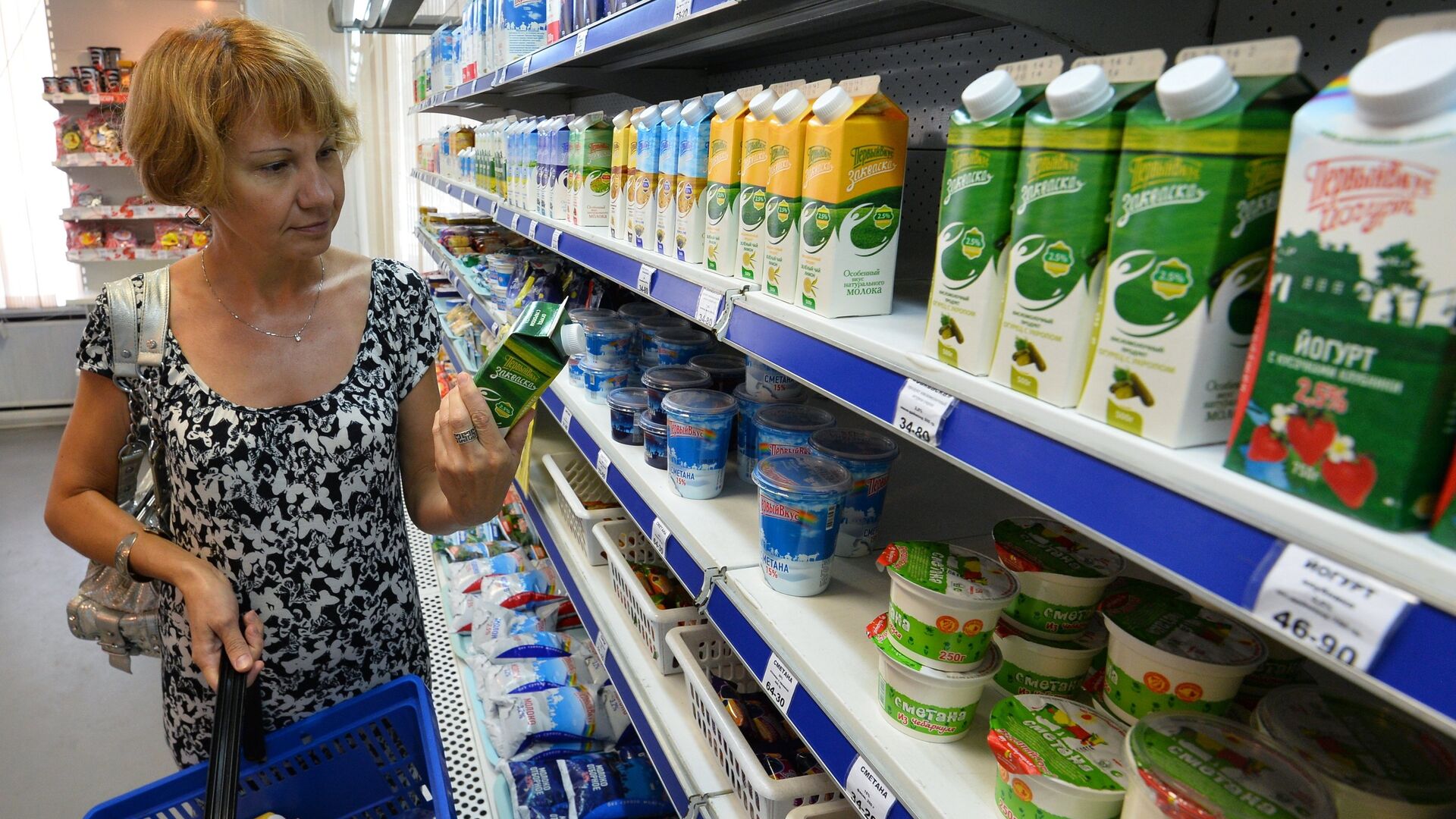
© Sputnik / Aleksandr Kondratuk
/ Subscribe
Kefir, an innocuous fermented milk drink similar to thin yogurt associated with Russia, has fallen prey to the outbreak of anti-Russian sentiment following Moscow's military operation in Ukraine.
The sour milk product kefir will be removed from Swedish stores for a while, as local manufacturer Arla deemed its packaging featuring trademark onion domes reminiscent of the world-known Saint Basil's Cathedral unsuitable and inappropriate in the current circumstances, citing Russia's special operation to demilitarise and de-Nazify Ukraine, which the West portrays as an “invasion”.
While Arla's kefir is produced in Sweden and consists entirely of Swedish raw materials, Arla nevertheless decided to withdraw the product due to “Russian associations”.
“It is true that Arla has chosen to temporarily stop the sale of Kefir. The product's content is 100% Swedish raw materials, but the packaging features an illustration of the Red Square in Moscow and as the situation is right now, we do not want to be associated with Russia and the Russian regime. We think that that the illustration alone brings thoughts to that and it does not feel good”, Arla's communications manager Caroline Starck told the news broadcaster SVT.
Kefir is a fermented milk drink similar to thin yogurt made using a specific type of mesophilic symbiotic culture originating in the North Caucasus.
Remarkably, sales of smetana, a fellow sour cream product common in Russian cuisine, will continue unperturbed, as Arla deemed its packaging more neutral.
The decision by the Danish-Swedish dairy giant sparked a wave of outrage on Twitter.
“Swedish Arla has decided to stop producing Kefir, because it's “too much associated with Russia” and “presently unsuitable”. This is one of the most idiotic things I've heard. Have people completely lost their f***ing minds??? It's fermented milk”, one user wrote.
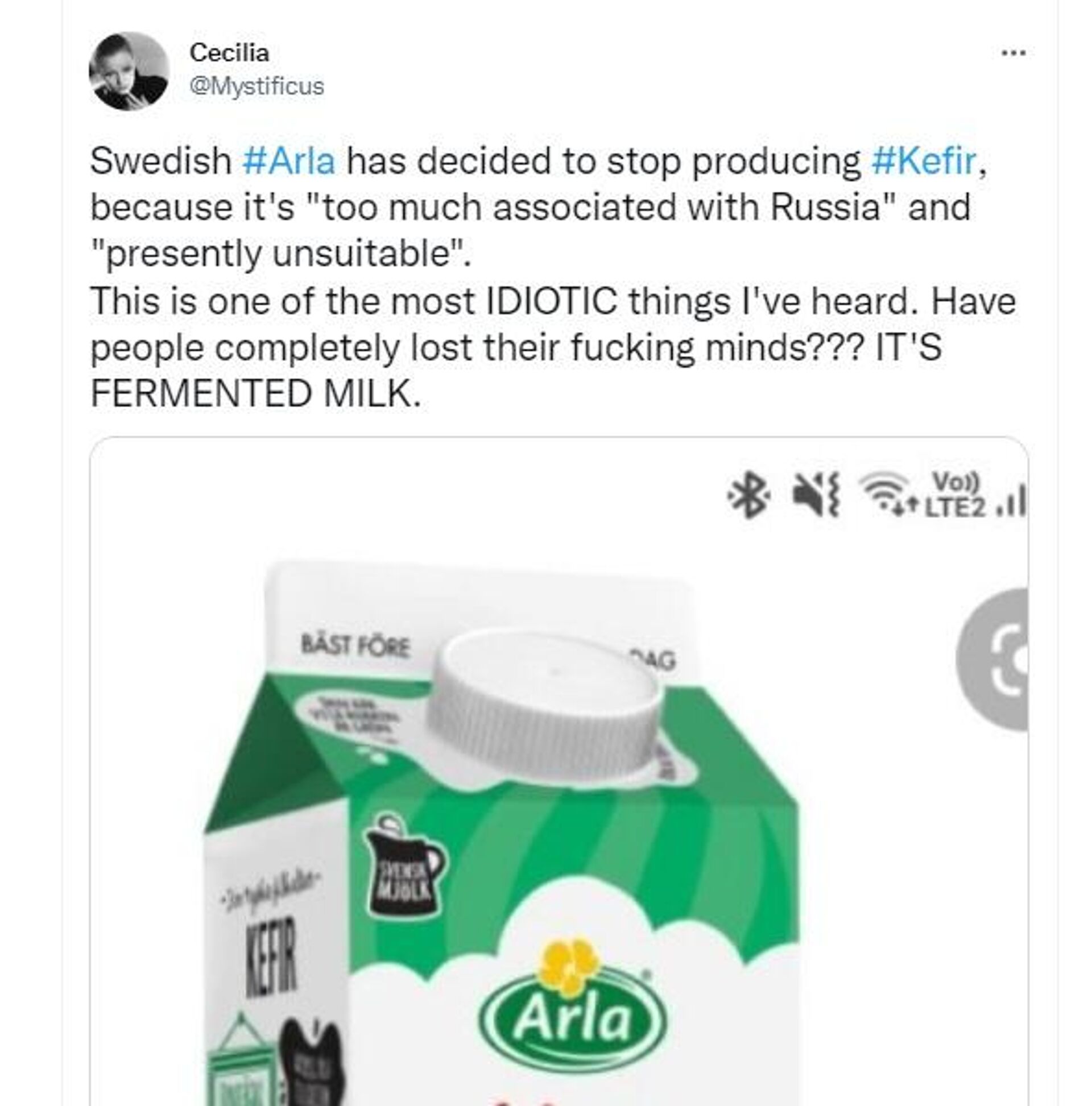
Users discussing Arla's decision to stop Kefir over "Russian associations"
© Photo : Cecilia@Mystificus
Others called it “stupidity at the highest level”.
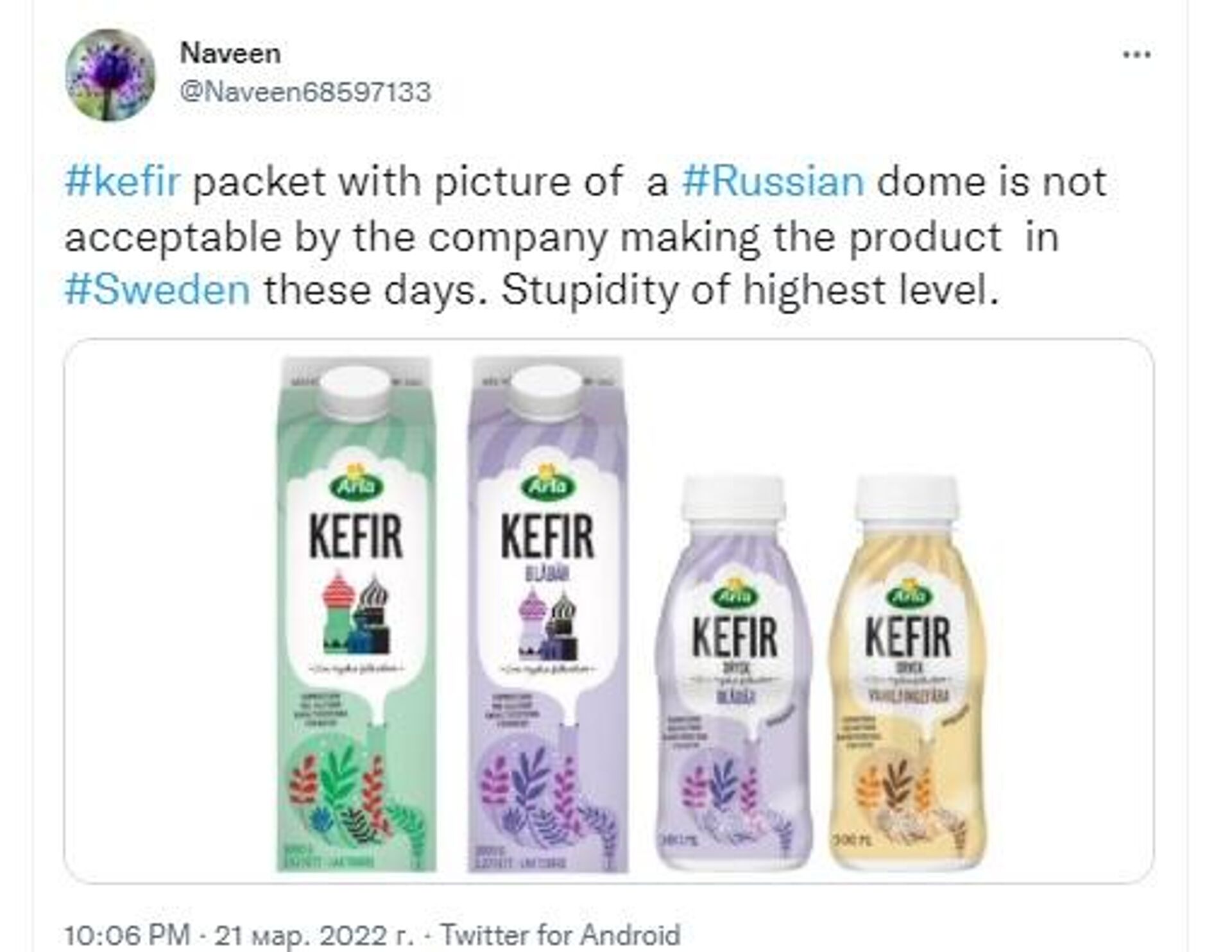
Users discussing Arla's decision to stop Kefir over "Russian associations"
© Photo : Naveen@Naveen68597133
“Today, a package of Kefir became a protest against the madness of groupthink. This is what happens when you answer 'very important' to the question whether companies should take more social responsibility?” another one mused.
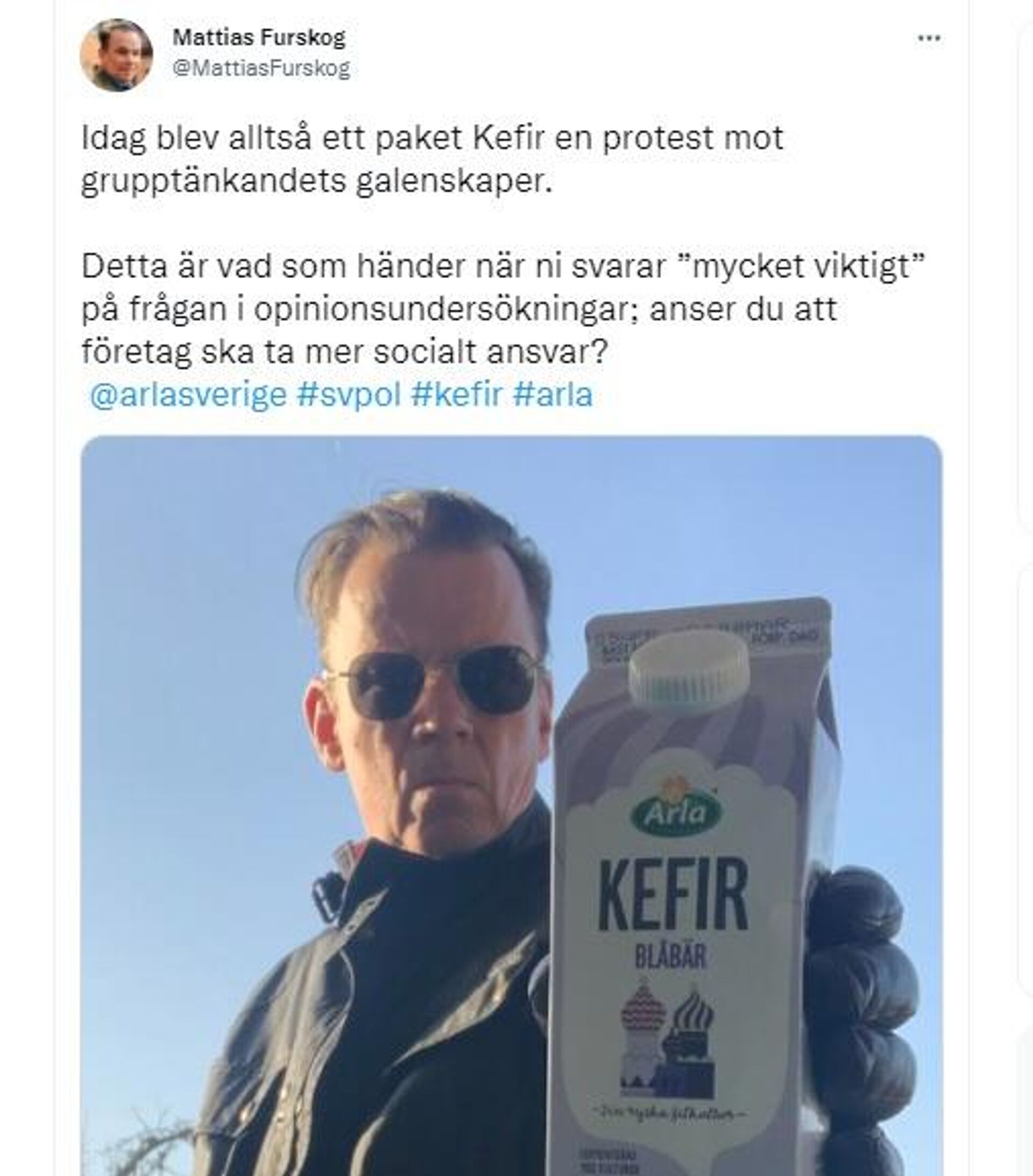
Users discussing Arla's decision to stop Kefir over "Russian associations"
© Photo : Mattias Furskog@MattiasFurskog
“God damn what hypocritical nonsense. There was no talk of discontinuing working with American Starbucks when NATO/US destroyed Libya, in violation of international law…” another one chipped in.
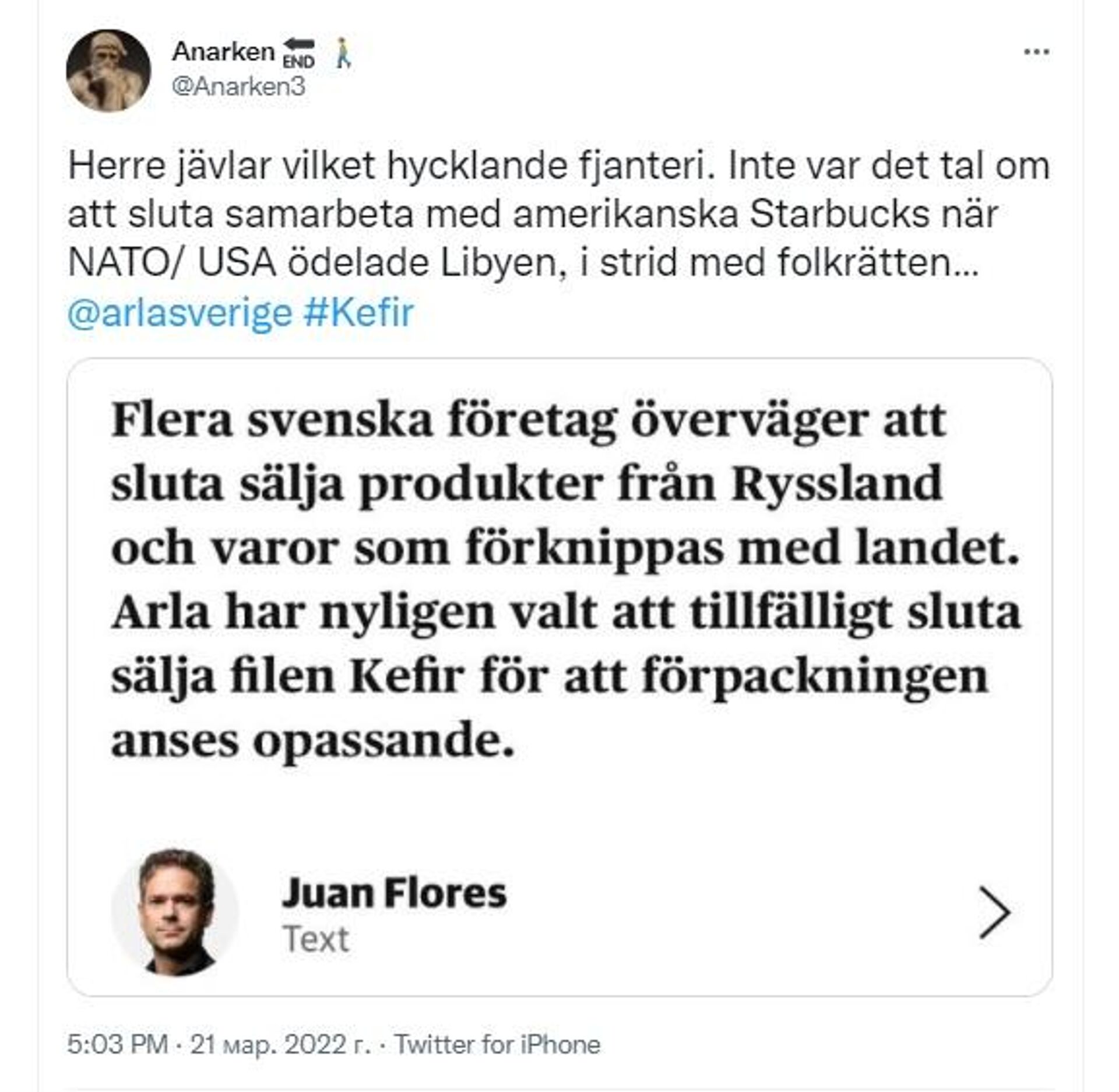
Users discussing Arla's decision to stop Kefir over "Russian associations"
© Photo : Anarken@Anarken3
“A Swedish product by a Swedish company – this is downright ridiculous. And by extension dangerous. Anything that can in any way be associated with anything Russian is pariah. Should my students named Igor, Boris and Anton be forced to change their names as well?” yet another mused.
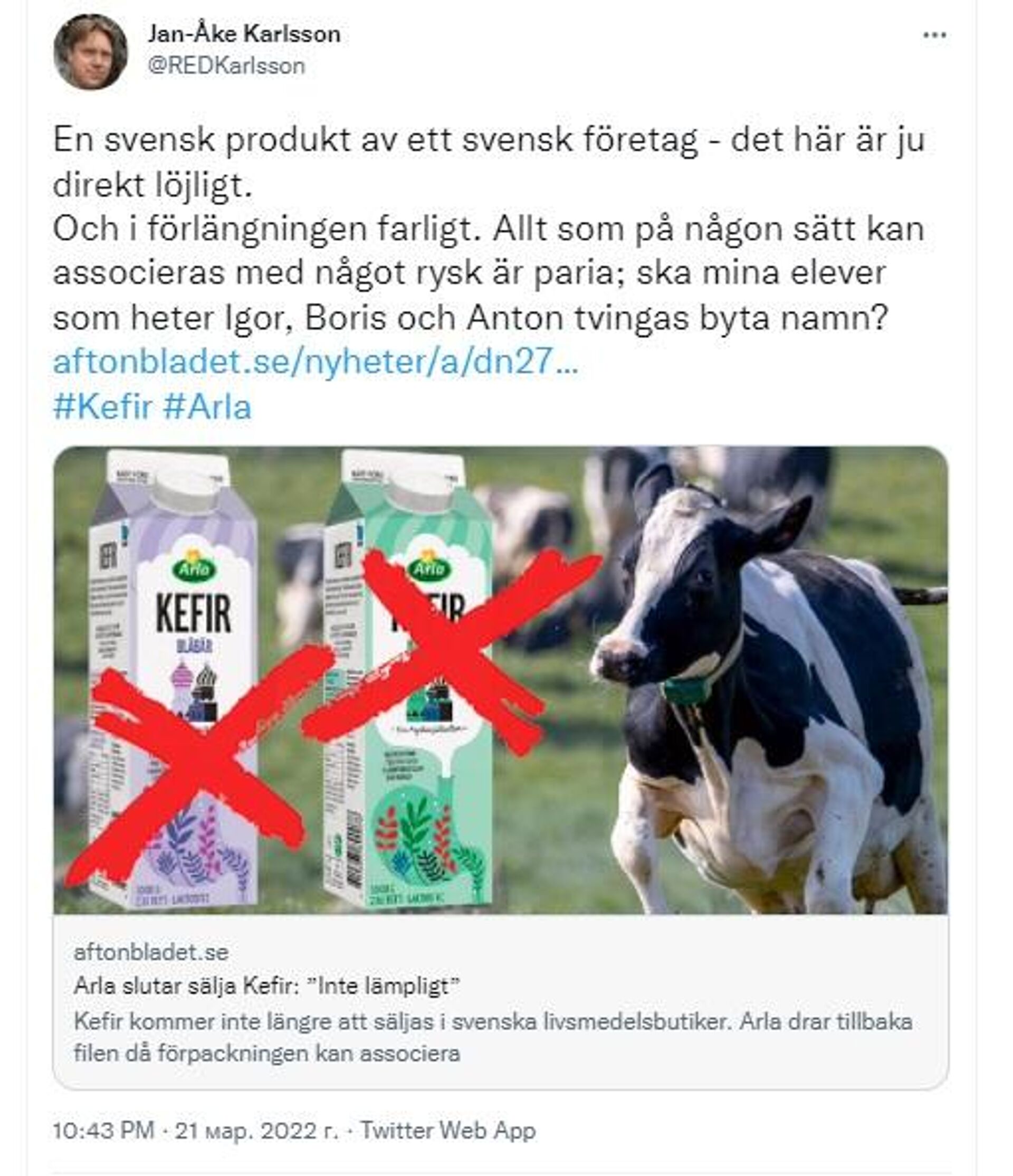
Users discussing Arla's decision to stop Kefir over "Russian associations"
© Photo : Jan-Åke Karlsson@REDKarlsson
Russia launched its military operation in Ukraine on 24 February, responding to calls for help from the People's Republics of Donetsk and Lugansk. The US and its Western allies retaliated by imposing massive sanctions against Russia, while many Western companies have also left the country's market in protest. Manufacturers and business owners have started pulling Russian or Russian-associated products as a token of their condemnation. Anti-Russian sentiment has also soared in the West, reaching Cold War-era levels – to the point where schoolchildren are getting bullied and exposed to verbal abuse and people are persecuted for having Russian sympathies.

